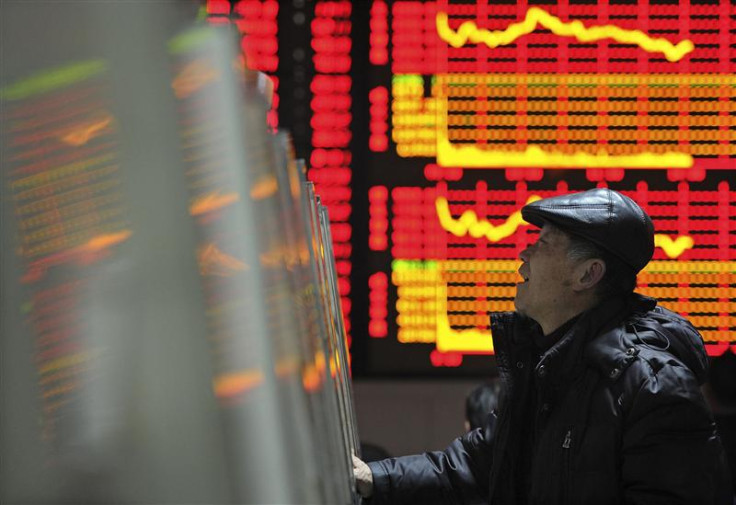China stocks plummet as Asian share rout continues

Chinese shares extended heavy losses from the previous week on 24 August, despite fresh government measures to stem the rout.
The mainland's benchmark Shanghai Composite index plummeted by 8.4% to 3,211.30 at mid-day, while the small-cap Shenzhen index dived 7.6% to 1,884.16.
The sharp decline came despite Beijing announcing over the weekend that it would allow its main state pension fund to invest in the stock market.
Share markets across the world have fallen due to a mixture of disappointing economic news from China and worries about the impact of falling oil prices.
On 21 August, a gauge of Chinese manufacturing activity dipped to its lowest level in more than six years, deepening worries of a China-led global slowdown.
Shares in Hong Kong followed the mainland lower, with the Hang Seng shedding 4.5% to 21,402.77.
Rest of Asia
Analysts were disappointed by the lack of fresh support measures from China's central bank to arrest the free-fall in the stock market, which has shed more than 30% of its value since June.
"The market is in a downtrend. There's no good news, stocks are still expensive, and there's no fresh money coming in," Qi Yifeng, analyst at CEBM, told Reuters.
"With no [reserve requirement] cut over the weekend, the market will directly head south.
"The pension fund news will not help, because the money is limited, you don't know when the money will come in, and the purchase is not sustainable," Qi added.
Elsewhere, Japan's Nikkei index slid 4.2% to 18,629.45 points, a near five-month low, while Australia's S&P/ASX 200 was down by 3.2% at 5,049.90.
In South Korea, the Kospi fell by 2.2% to 1,834.12 amid renewed tensions with the North.
Other factors at work?
Fears over China sent global markets into a tailspin last week, with the S&P 500 in the US closing down 3.2% on 21 August - its biggest drop in nearly four years.
"On the surface it would be easy to point the finger at slowing China growth, falling oil prices and emerging market currency wars as the reason why global equity markets have fallen sharply through the summer," Sean Darby, chief global equity strategist at Jeffries, was quoted as saying by Reuters.
"However, a mix of disinflation and deflation forces, a tightening in global monetary conditions and deteriorating profits in emerging markets are much greater factors."
© Copyright IBTimes 2024. All rights reserved.






